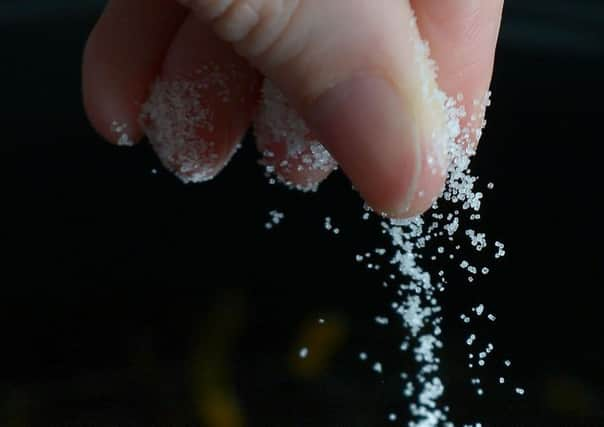Kevan Christie: You can't offset tray bakes by eating the odd avocado


A hardy band of corner-cutters and cheats have convinced ourselves that the epitome of a balanced diet is to have the odd avocado and a daily handful of almonds to be consumed in between steak bakes, tray bakes and macaroni pies. A trip to the boozer for too many pints is allowed provided you’ve been to the gym beforehand and flirted with the idea of porridge with blueberries for lunch.
We ‘offsetters’ celebrated the news that black pudding may be a ‘wonder food’ like Scotland had beaten Brazil 8-0 in the World Cup Final. Pass the brown sauce.
Advertisement
Hide AdAdvertisement
Hide AdHowever, this self-deluding fantasy has ground to a shuddering halt with the announcement last week that people who eat copious amounts of fruit and veg may still have an increased risk of high blood pressure if they consume a lot of salt.
The offset genie is out of the bottle, it doesn’t work, our worse fears have been confirmed – it’s a case of one or t’other.
The Action on Salt survey found that the worst offending Chinese takeaway dishes were found to contain as much salt as five McDonald’s Big Macs (before you put extra salt on them) so it’s fair to say that’s a large amount of sodium chloride in anyone’s book.
The inevitable calls for more labelling are coming thick and fast but it’s questionable whether that would make any difference. Certainly some kind of dietary information system in restaurants would be beneficial, but that may just put a downer on your night as each dish comes with a health warning.
This wasn’t so much of a problem for my generation of 1980s teenagers who were at the forefront of the ready-meal revolution. I use the term ‘revolution’ lightly – what I actually mean is Findus Crispy Pancakes and a small piece of cod in parsley sauce that came in a polybag.
No-one was under the illusion that a gloop-filled pancake was good for you, because we never gave these things a second thought.
Food was food, the term ‘junk food’ hadn’t been invented but your mum would still give you a row for eating too much ‘rubbish’ before your tea.
A trip to the Chinese takeaway was often a rare treat for my teenage pals after a hard night spent sitting on a park bench – but this was only to buy chips and curry sauce. On the rare occasions someone got fancy and bought chow mein or an actual curry there was no salt warning on the side of the foil tray.
Advertisement
Hide AdAdvertisement
Hide AdAccording to Action on Salt, the average person in the UK is thought to eat around 8.1g salt a day.
This has reduced by 15 per cent over the last decade, primarily due to product reformulation, whereby the food industry has gradually reduced the amount of salt added to their food.
But we are still eating a third more than the maximum recommended intake of 6g a day, putting us all at increased risk of a range of disease later in life.
The Holy Trinity of the food industry – sugar, salt and fat – are now inextricably linked to high-blood pressure, heart disease, cancer and obesity. So, time’s up for these shocking ready meals, we should all take a few seconds to read the traffic light warning system on the side of dishes and aim to wean ourselves off the salt.
